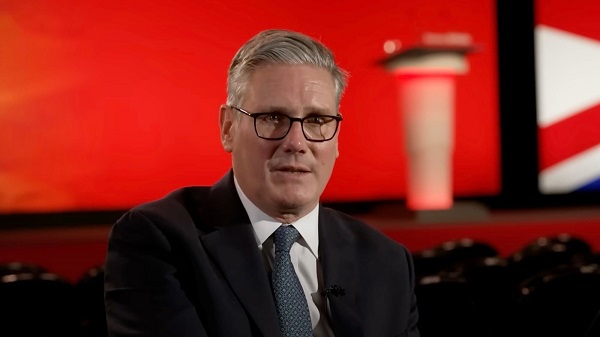Internet
It’s only a matter of time before the government attaches strings to mainstream media subsidies

Misinformation is not exclusive to alternative online news organizations
In a previous world, whether they succeeded or failed at that was really no one’s business, at least provided the publisher wasn’t knowingly spreading false information intended to do harm. That is against the law, as outlined in Section 372 of the Criminal Code, which states:
“Everyone commits an offence who, with intent to injure or alarm a person, conveys information that they know is false, or causes such information to be conveyed by letter or any means of telecommunication.”
Do that, and you can be imprisoned for up to two years.
But if a publisher was simply offering poorly researched, unbalanced journalism, and wave after wave of unchallenged opinion pieces with the ability to pervert the flow of information and leave the public with false or distorted impressions of the world, he or she was free to do so. Freedom of the press and all that.
The broadcasting world has always been different. Licensed by the Canadian Radio-television and Telecommunications Commission (CRTC), content produced there must, according to the Broadcasting Act, be of “high standard”—something that the CRTC ensures through its proxy content regulator, the Canadian Broadcast Standards Council (CBSC).
Its most recent decision, for instance, condemned Sportsnet Ontario for failing to “provide a warning before showing scenes of extraordinary violence” when it broadcast highlights of UFC mixed martial arts competitions during morning weekend hours when children could watch. If you don’t understand how a warning would have prevented whatever trauma the highlights may have caused or how that might apply to the internet, take comfort in the fact that you aren’t alone.
The CRTC now has authority over all video and audio content posted digitally through the Online Streaming Act, and while it has not yet applied CRTC-approved CBSC standards to it, it’s probably only a matter of time before it does.
The same will—in my view—eventually take place regarding text news content. Since it has become a matter of public interest through subsidies, it’s inevitable that “high standard” expectations will be attached to eligibility. In other words, what once was nobody’s business is now everybody’s business. Freedom of the, er, press and all that.

Alberta Premier Danielle Smith
Which raises the point: is the Canadian public well informed by the news industry, and who exactly will be the judge of that now that market forces have been, if not eliminated, at least emasculated?
For instance, as former Opposition leader Preston Manning recently wondered on Substack, how can it be that “62 per cent of Ontarians,” according to a Pollara poll, believe Alberta Premier Danielle Smith to be a separatist?
“The truth is that Premier Smith—whom I’ve known personally for a long time—is not a separatist and has made that clear on numerous occasions to the public, the media, and anyone who asks her,” he wrote.
I, too, have been acquainted for many years with the woman Globe and Mailcolumnist Andrew Coyne likes to call “Premier Loon” and have the same view as Manning, whom I have also known for many years: Smith is not a separatist.
Manning’s theory is that there are three reasons for Ontarians’ disordered view—the first two being ignorance and indifference.
The third and greatest, he wrote, is “misinformation—not so much misinformation transmitted via social media, because it is especially older Ontarians who believe the lie about Smith—but misinformation fed into the minds of Ontarians via the traditional media” which includes CBC, CTV, Global, and “the Toronto-based, legacy print media.”
No doubt, some members of those organizations would protest and claim the former Reform Party leader is the cause of all the trouble.
Such is today’s Canada, where the flying time between Calgary and Toronto is roughly the same as between London and Moscow, and the sense of east-west cultural dislocation is at times similar. As Rudyard Kipling determined, the twain shall never meet “till earth and sky stand presently at God’s great judgment seat.”
This doesn’t mean easterners and westerners can’t get along. Heavens no. But what it does illustrate is that maybe having editorial coverage decisions universally made in Hogtown about Cowtown (the author’s outdated terminology), Halifax, St John’s, Yellowknife, or Prince Rupert isn’t helping national unity. It is ridiculous, when you think about it, that anyone believes a vast nation’s residents could have compatible views when key decisions are limited to those perched six degrees south of the 49th parallel within earshot of Buffalo.
But CTV won’t change. Global can’t. The Globe is a Toronto newspaper, and most Postmedia products have become stripped-down satellites condemned to eternally orbit 365 Bloor Street East.
The CRTC is preoccupied with finding novel ways to subsidize broadcasters to maintain a status quo involving breakfast shows. So we can’t expect any changes there, nor can we from the major publishers.
Which leaves the job to the CBC, whose job it has always been to make sure the twain could meet. That makes it fair to assume Manning will be writing for many years to come about Toronto’s mainstream media and misinformation about the West.
(Peter Menzies is a commentator and consultant on media, Macdonald-Laurier Institute Senior Fellow, a past publisher of the Calgary Herald, a former vice chair of the CRTC and a National Newspaper Award winner.)
Censorship Industrial Complex
Hurting someone’s feelings could be punishable under Canadian hate crime bill: legal expert

From LifeSiteNews
Justice Centre for Constitutional Freedoms president John Carpay said that Bill C-9 in effect seeks to make it the law to ‘punish the emotion of hate.’
One of Canada’s leading constitutional law experts blasted a new Liberal “hate crime” bill as something that would “empower police” and the government to go after those it deems have violated a person’s “feelings” in a “hateful” way.
In a recent commentary piece posted by The Epoch Times, Canadian legal expert and lawyer John Carpay, founder and president of the Justice Centre for Constitutional Freedoms (JCCF), observed that the Liberals’ Bill C-9, or Combating Hate Act, is dangerous.
“Canada’s Criminal Code should punish bad behaviour, not bad feelings. Canadians need protection from crime, not from offensive opinions that might be considered ‘hateful’ by some but not by others,” Carpay wrote.
Carpay said that it seems the Liberals are “fixated on further criminalizing feelings of hatred that criminals may have had when carrying out their crimes.”
“Defining hate is near-impossible, as can be seen whenever politicians and judges attempt to do so,” he wrote.
Bill C-9 was brought forth in the House of Commons on September 19 by Justice Minister Sean Fraser.
The Liberals have boasted that the bill will make it a crime for people to block the entrance to, or intimidate people from attending, a church or other place of worship, a school, or a community center. The bill would also make it a crime to promote so-called hate symbols and would, in effect, ban the display of certain symbols such as the Nazi flag.
Bill C-9 reads, regarding what is deemed “hateful,” that “For greater certainty, the communication of a statement does not incite or promote hatred … solely because it discredits, humiliates, hurts or offends.”
Carpay said Bill C-9 “allows Canadians to express ‘disdain’ and ‘dislike’ without worrying about facing criminal charges, yet Canadians must be careful not to possess illegal emotions that involve ‘detestation’ or ‘vilification.’ It’s not ‘hate’ to discredit, humiliate, hurt, offend, and dislike people; it is “hate” to detest and vilify people. Are we clear?”
Carpay said that Bill C-9 in effect seeks to make it the law to “punish the emotion of hate,” noting how the reality is this “ignores” the reality that Canada’s judges are already “empowered to impose more severe penalties on hate-fueled criminals.”
The new bill increases the maximum penalty a judge can give to people convicted of crimes.
“If the judge decides that the convicted person’s emotions crossed from the legal territory of ‘disdain’ and ‘dislike’ into the crime of feeling ‘detestation’ or ‘vilification,’” Carpay noted.
This means that for a minor crime, where the maximum penalty is two years, a new “hate” crime offense could land someone in jail for up to five years.
“For the man convicted of a crime with a maximum penalty of five years in jail, if the judge determines that he possessed ‘hate’ in his heart, the judge can lock him up for 10 years instead of five,” Carpay stated.
“For more serious crimes, where the maximum penalty is 14 or more years in jail, if the judge thinks the convicted person was ‘hateful,’ the sentence can be imprisonment for life.”
The Liberals’ Bill C-9 has been blasted by the Canadian Conservative Party as a “dangerous” piece of legislation.
Conservative MP Leslyn Lewis warned it will open the door for authorities to possibly prosecute Canadians’ speech deemed “hateful.”
Carpay: Bill would ‘empower’ police, government
As it stands, Section 319(6) of Canada’s Criminal Code mandates consent of the nation’s attorney general before a person can be charged with a hate crime. Lewis and Carpay warned that Bill C-9 will eliminate this protection.
“Bill C-9 makes existing laws worse by empowering police to use the Criminal Code to impose their own subjective beliefs about what a police officer personally feels is ‘hateful.’ The bill does this by repealing an important safeguard that protects the free speech of all Canadians, namely the requirement that the attorney general consent to any prosecution for hate speech offences,” Carpay said.
He observed that the attorney general consent “safeguard,” as is the case now, has allowed hate speech prosecutions to proceed, “but only after a review by a higher authority.”
Fraser himself said that “by removing this step, law enforcement would be able to act quickly.”
Carpay noted how the bills promise to make it a “crime” to intimidate a church or place of worship, which is “not true.”
“It is already a crime to utter threats, intentionally provoke a state of fear in people, engage in physical contact (even in a minor way), and physically obstruct people from going about their business,” he wrote.
“Bill C-9 creates a duplicative and superfluous criminal offence of impeding access to a house of worship by intentionally provoking a state of fear; this conduct is already criminal under existing laws. By creating a redundant new law, Bill C-9 appears to be an exercise in virtue-signaling.”
Carpay also lamented how the bill mentions “rising antisemitism” but says nothing about the arson attacks on Catholic and Christian churches plaguing Canada.
“Anti-Catholic hate is obviously not on the minister’s radar. If it was, he would have mentioned it when introducing the Combatting Hate Act,” Carpay wrote.
“It goes to show how Bill C-9 is primarily about politics and appearances, even while undermining free expression in Canada.”
Since taking power in 2015, the Liberal government has brought forth many new bills that, in effect, censor internet content as well as go after people’s ability to speak their minds.
Business
Bill C-8 would allow minister to secretly cut off phone, Internet service

From the Canadian Constitution Foundation
“I worry that this law could be used to secretly cut off political dissidents from their phone or Internet service on the pretense that they may try to manipulate the telecom system”
The Canadian Constitution Foundation is concerned about the civil liberties implications of the Carney government’s proposed cyber security bill, C-8, which would allow the minister of industry to secretly order telecommunications service providers like Telus, Bell and Rogers to stop providing services to individual Canadians.
The minister would be allowed to make such an order if she has “reasonable grounds to believe that it is necessary to do so to secure the Canadian telecommunications system against any threat, including that of interference, manipulation, disruption or degradation.”
An individual who does not comply, including by failing to keep the order secret, could face fines of up to $25,000 for the first contravention and $50,000 for subsequent contraventions. Businesses could face fines of up to $10 million for the first contravention and up to $15 million for subsequent contraventions.
The orders would remain secret indefinitely, with the minister required only to present an annual report to Parliament on the number of orders made and her opinion on their necessity, reasonableness and utility.
CCF Counsel Josh Dehaas said that the power to cut off the Internet or cellphone service of Canadians is a “very serious power that requires very strong safeguards, which are presently lacking in the bill.”
“While this power may be necessary in some cases to prevent cyber attacks, it also poses serious risks to civil liberties,” Dehaas said. “I worry that this law could be used to secretly cut off political dissidents from their phone or Internet service on the pretense that they may try to manipulate the telecom system,” Dehaas explained. “Such an action would violate our most cherished freedoms including free speech.”
CCF Litigation Director Christine Van Geyn said that the government cannot be trusted with such a power unless proper safeguards are in place.
“You may think that the idea of the government cutting off political dissidents from the necessities of life sounds far-fetched, but that’s exactly what happened during the 2022 Freedom Convoy protests in Ottawa,” she said. “The federal government ordered banks to freeze hundreds of bank accounts without any judicial authorization, cutting protesters off from their money in the middle of a very cold winter.”
“Although the Federal Court agreed with the CCF that freezing bank accounts this way violated the constitutional right to be secure against unreasonable searches and seizures, that kind of damage isn’t easily repaired,” Van Geyn added.
Ottawa has appealed the Federal Court’s finding. The CCF is awaiting a decision from the Federal Court of Appeal.
Dehaas said that Parliament should consider requiring either judicial pre-authorization or an immediate, automatic judicial review of any decision to cut off an individual or business from their Internet or phone.
The CCF is also concerned that Bill C-8 would allow the minister to weaken telecommunications companies’ encryption standards, allowing for unconstitutional access to Canadians’ private information.
Finally, the CCF is concerned that the bill could allow the minister or any person designated by the minister to engage in unconstitutional searches.
Joanna Baron, the CCF’s Executive Director, said that Canadians must be vigilant about their constitutional rights and freedoms because they can be easily taken away, especially in times of crisis.
“I would encourage Canadians to fight for their freedoms, whether it’s by taking the CCF’s free privacy course, signing up for our weekly Freedom Update newsletter or becoming a monthly donor,” Baron said.
“Concerned Canadians are also encouraged to write to their MPs using our form letter, to tell them to amend these bills to ensure Canadians’ rights to privacy and free expression are protected,” Baron added.
-

 Artificial Intelligence1 day ago
Artificial Intelligence1 day agoThe App That Pays You to Give Away Your Voice
-

 Health1 day ago
Health1 day agoThe Religious Faith in Vaccines has been Challenged, Forcing New Studies and More Rigorous Standards
-

 Agriculture3 hours ago
Agriculture3 hours agoCarney’s nation-building plan forgets food
-

 Fraser Institute4 hours ago
Fraser Institute4 hours agoAboriginal rights now more constitutionally powerful than any Charter right
-

 Alberta5 hours ago
Alberta5 hours agoAlberta puts pressure on the federal government’s euthanasia regime
-

 Business2 days ago
Business2 days agoUK Government Dismisses Public Outcry, Pushes Ahead with Controversial Digital ID Plan
-

 Crime2 days ago
Crime2 days agoThe “Strong Borders Act,” Misses the Mark — Only Deep Legal Reforms Will Confront Canada’s Fentanyl Networks
-

 Censorship Industrial Complex2 days ago
Censorship Industrial Complex2 days agoBill C-9 and the Tyranny of Feeling Heading Straight for Canadians






